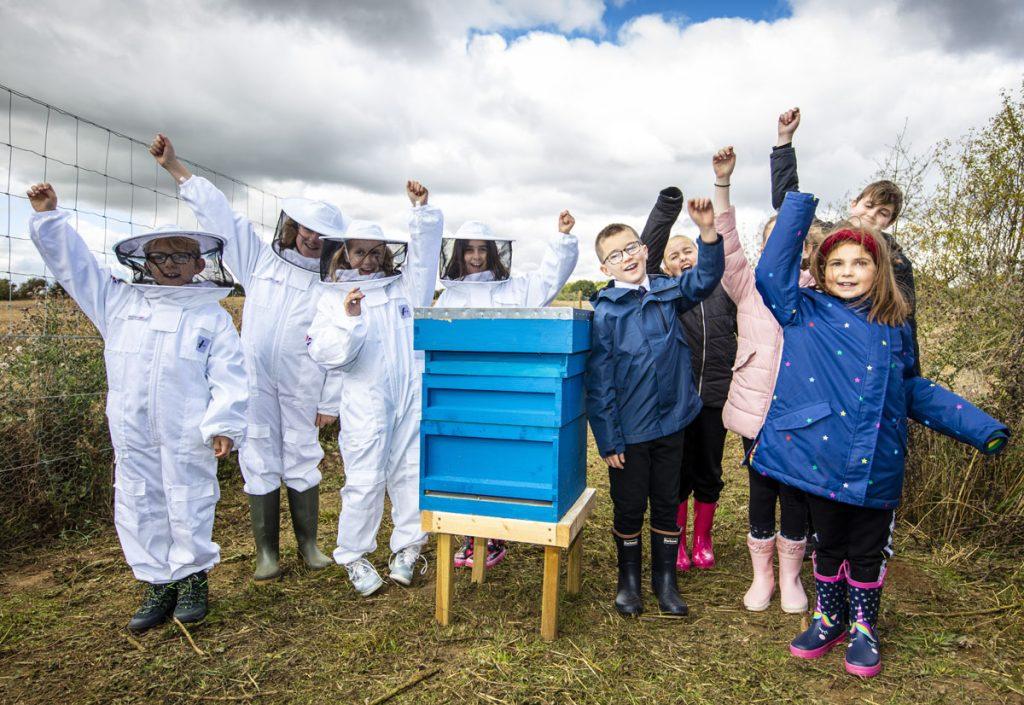Pupils name Queen Bee in new HS2 wildlife beehive
13/10/2022

The project aims to protect and expand populations of the endangered British Black Bee
Pupils from a Brackley Primary School have taken part in a naming ceremony for the Queen Bee in a new wildlife site beehive. Youngsters from the Radstone Primary School chose Lillibee – a name which had been put forward as a tribute to the late Queen Elizabeth II.
Two beehives have been installed at the wildlife site, which has been created by HS2 as part of a partnership with the Great British Bee Project. When complete the site will house 14 hives.
The Great British Bee Project aim to protect and expand populations of the endangered British Black Bee – Britain’s only native bee species.
At the Radstone Primary School the children had created a shortlist of names with the winner selected following a vote by the school council – 12 children aged between seven and 11.
The collaboration was part of the local education and engagement programme run by HS2’s civil contractor EKFB. The team worked with the school to organise an outdoor learning seminar for the children, to aid their learning.
The seminar was focused on pollination and the wildlife in their area, and the children had the opportunity to learn more about careers in the fields of ecology and the natural environment.
The HS2 wildlife site is part of HS2’s Green Corridor, which is producing new green spaces for wildlife and the local community along the railway. An area equivalent to 315 football pitches has already been created on the section of HS2 from the Chiltern Tunnel in Buckinghamshire to Long Itchington Wood Tunnel in Warwickshire.
It was selected as an ideal site to help restore Britain’s native bees as it has everything the bees need, including trees, hedgerows, six ponds and well-established wildflower meadows.
James Hicks, Biodiversity Specialist at HS2 said: “It’s projects like this, including opportunities for schools and local communities to get close to nature, which really bring our Green Corridor programme to life and demonstrate how HS2 is creating a lasting environmental legacy for future generations.”
Jeff Castle, Chief Nectar Collector from Great British Bee Project said: “The bees will be bred until the colonies are ready to split. The pure-bred bees will then be taken to other hotspots around the country, where they will be able to mate with other black bees, bolstering the population across the UK. The more bees introduced to sites like this means more pollinators, more flowers, which in turn leads to more insects, which then attracts more birds and other animals.”
Assistant Head Teacher at The Radstone Primary School, Sophie Matthews, said: “The children thoroughly enjoyed their visit to the conservation site and loved learning about the bees and the environment right on their doorstep. The children have been inspired by their morning and we now have a few budding ecologists on our hands.”
Published: by the Banbury FM News Team
